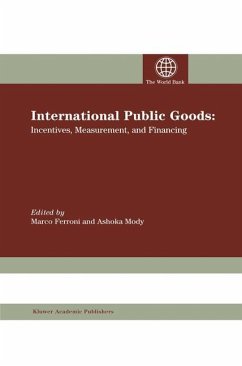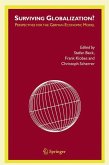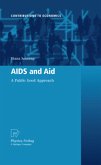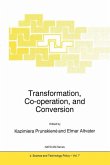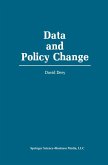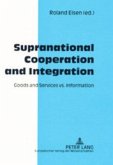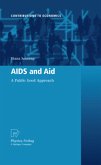Security concerns, the AIDS epidemic, environmental degradation, and financial contagion are salient features of today's landscape of threats to global stability. A characteristic of these challenges is that they cannot be solved by individual nations acting alone. Enlightened cooperation is needed.
This book focuses on actions in the international arena to complement domestic efforts in addressing a set of policy challenges that has become more prominent in the age of globalization. It focuses on the strategic and practical challenges of fostering solutions that have the character of international public goods, paying particular attention to the financing of these goods.
Hinweis: Dieser Artikel kann nur an eine deutsche Lieferadresse ausgeliefert werden.
This book focuses on actions in the international arena to complement domestic efforts in addressing a set of policy challenges that has become more prominent in the age of globalization. It focuses on the strategic and practical challenges of fostering solutions that have the character of international public goods, paying particular attention to the financing of these goods.
Hinweis: Dieser Artikel kann nur an eine deutsche Lieferadresse ausgeliefert werden.
From the reviews:
"International public goods or national public goods contributed by one country or another have risen in international importance and official attention in the last two decades of the 20th century. The subject is of great interest and importance, and most unlikely to go away."
(Charles Kindleberger, Ford Professor Emeritus, Massachusetts Institute of Technology)
"Public goods contribute to general welfare but will be undersupplied without collective action - a well-known proposition that applies globally as well as nationally. This book thoughtfully and usefully identifies a range of international public goods and explores the possibilities and prospects for increasing their supply."
(Richard N. Cooper, Boas Professor of International Economics, Harvard University)
"International public goods or national public goods contributed by one country or another have risen in international importance and official attention in the last two decades of the 20th century. The subject is of great interest and importance, and most unlikely to go away."
(Charles Kindleberger, Ford Professor Emeritus, Massachusetts Institute of Technology)
"Public goods contribute to general welfare but will be undersupplied without collective action - a well-known proposition that applies globally as well as nationally. This book thoughtfully and usefully identifies a range of international public goods and explores the possibilities and prospects for increasing their supply."
(Richard N. Cooper, Boas Professor of International Economics, Harvard University)

